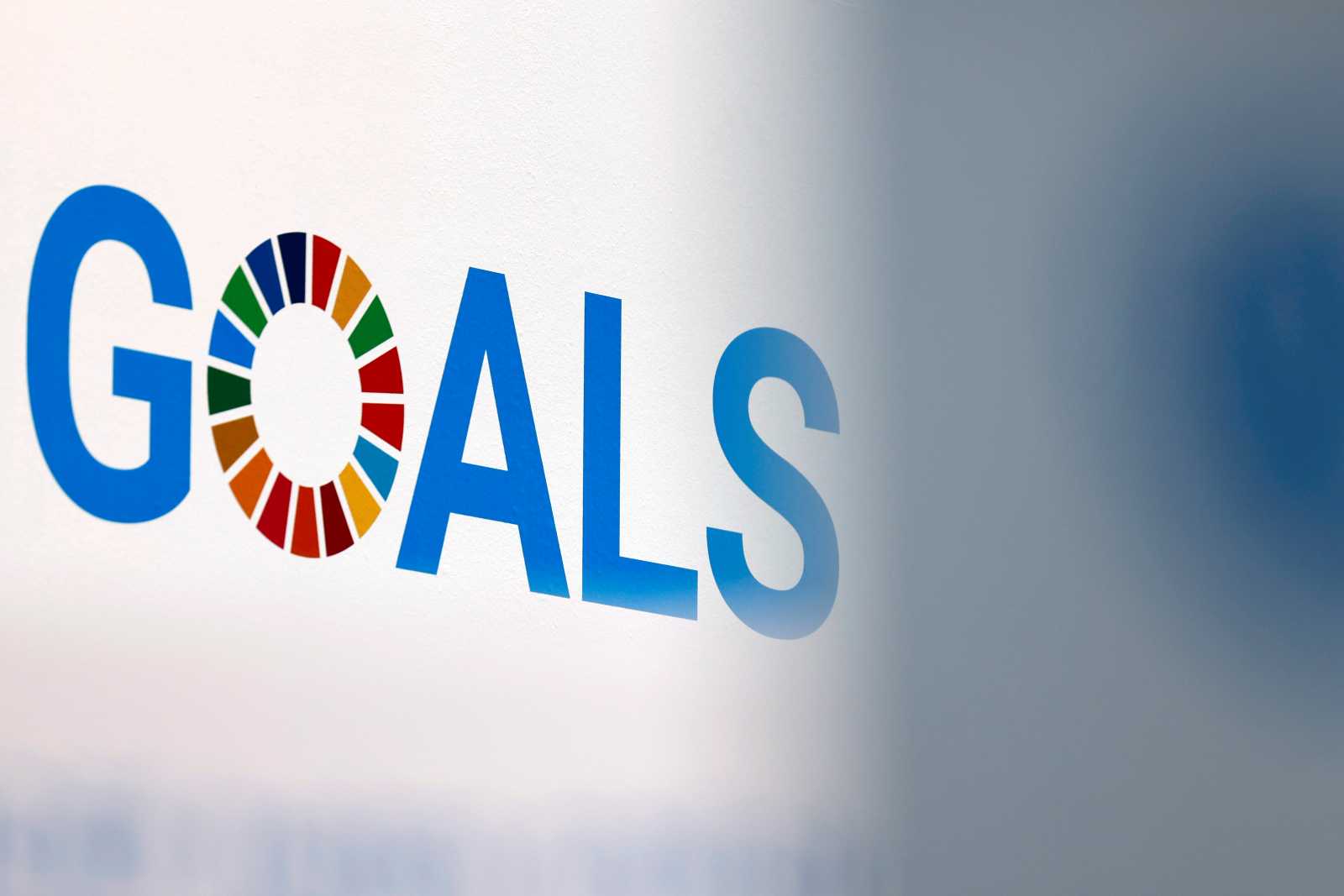Global Governance
“Historically unprecedented”

We used to think that global governance is brought about by sovereign governments concluding multilateral agreements with binding rules for all partners. But that is not working, is it?
No, it isn’t. Ahead of the climate summit in Copenhagen in 2008, the WBGU prepared a study on behalf of Germany’s Federal Government. In it, we spelled out what a fair global climate regime would look like. We came up with a sensible proposal. Basically, every human being would have had the same right to emit greenhouse gases. Obviously, only a limited amount of global emissions was compatible with keeping global warming below two degrees on average, so we could calculate per-capita emission rights. On that basis, we wanted to define emission budget for every country according to its population, and emission trading would have been allowed. The approach was pragmatic and made sense, but it did not bear fruit. The international community did not agree on binding rules in Copenhagen.
Nor did the climate summit in Paris in 2015.
That’s right. The Paris Agreement spells out ambitious goals, but not what must be done. Every country announces what it intends to do, and then we’ll see what it all adds up to. Either the action announced will suffice, or it needs to be scaled up.
Leena Srivastava and Arun Kansal estimate the likelihood of the Paris Agreement succeeding to be below 66 % because it is not binding.
Well, the probability of about two thirds is better than the zero probability we faced after Copenhagen. Climate protection actually has surprising momentum. The Paris Agreement was ratified in record time. Year after year, the International Energy Agency raises its forecasts concerning the growth of renewable energies. It recently reported that, for the first time since the industrial revolution, more than half of the newly installed power generation capacity was based on renewables in 2014. Moreover, two important agreements concerning emissions were concluded in recent weeks. Airlines will offset the emissions of air-travel, and HFCs will be phased out. The current momentum really inspires hope that the goals defined in Paris may yet be met.
Are there any lessons for global governance?
Well, let me say first of all that the many climate annual summits were not useless, even though they did not result in a globally binding emissions regime. What they did was facilitate a multi-layered, complex debate that helped to raise awareness internationally, and on this foundation, we are suddenly seeing a lot more action in countries, cities and private-sector businesses than we had expected. And it is entirely possible that this bottom-up dynamism will ultimately make the global climate regime more stringent too.
What has made the multi-layered debate effective?
For two reasons, the Intergovernmental Panel on Climate Change (IPCC) mattered a lot:
- It proved beyond doubt in scientific terms that the global climate is changing because of human interference and that this trend will have dramatic consequences if it continues unabated. Such globally produced knowledge ultimately silenced the voices that had kept spreading doubt and had often been funded by fossil industries.
- This knowledge was the result of international cooperation. Scholars from all over the world were involved in the research. Shared knowledge is basis for joint action.
Another important trend was that some countries became frontrunners: Germany, Denmark and others. China joined them about five years ago. They proved that it is possible to change the energy mix, and technology has been improving and becoming cheaper since. All this has contributed to the momentum we are witnessing now even though it seemed impossible in Copenhagen seven years ago. The recent climate summit in Marrakesh was fruther evidence of dynamism.
Are there other success stories concerning global governance?
Yes, the Millennium Development Goals (MDGs) were very important, and I hope the Sustainable Development Goals (SDGs) will have a similar impact. Die MDGs were a paradigm change in development affairs. Previously, the guiding principles were defined by the Washington Consensus with its focus on making markets as free as possible. Economic growth was the only accepted yardstick of success. In contrast, the SDGs are about fighting poverty, reducing inequality, accepting the planetary boundaries and building a fair world order. It is striking that the agenda is being driven by non binding rules – the agenda is about creating joint norms and world views. What really makes the difference is the shared understanding of the goals, just the way it does in climate matters. What matters now is that diverse players insist on implementation, at national as well as international levels. It is worth emphasising that the fight against poverty has really moved ahead everywhere, except for the countries that are rocked by war and strife.
But why didn’t global governance prevent wars?
This is a complex issue. Ironically, the successes we just discussed goes along with the disintegration of global security systems. The west in general, and especially the USA, have had to learn that military interventions often do not lead to the results they are supposed to bring about. The west’s political and economic influence is decreasing, moreover, – Trump will not stop, but accelerate this process. The UN Security Council reflects the distribution of power in the 20th century, not the 21st. Crises such as those in Ukraine, Syria or Libya are related to the fact that relevant powers are blocking one another instead of cooperating to bring about security for all.
You have co-edited a book on the foundations of international cooperation with your colleague Silke Weinlich (see article in D+C/E+Z e-Paper 2016/05). Do the essays inspire optimism?
Well, the core issue is that cooperation has a very long history. New institutions were invented again and again. Human civilisation, the emergence of cities, societies, states and the entire international system are based on human beings’ aptitude for cooperation. Observing the history of 200,000 years of human civilisation, cooperation can be seen as the third principle of evolution, besides mutation and selection. In the evolutionary perspective, we should expect further social and institutional innovations to occur and help us to solve global problems. When structures of cooperation collapse, however, the result is violence and conflict.
And that is evident today.
Yes, it is. History tells us, however, that civilisations typically make major progress after major crises. European integration, the Universal Declaration of Human Rights and the United Nations all came about after two devastating world wars, for example. The underlying philosophy is much older, however. Hugo Grotius came up with the innovative idea of international law in 1625, while Europe was being ravaged by the 30 years war. In 1795, Immanuel Kant wrote “Perpetual peace”, in which he outlined the principles of a rules-based international order and his vision of world citizenship.
Can we afford to experience major crises in order to learn the right lessons?
The problem is that we only have one Earth. We’ll lose if we irreversibly destroy the global climate, the oceans or the world’s farmlands, for example. The international community must learn how to safeguard global public goods in international cooperation, and it must do so fast. There are three daunting challenges:
- We must not over-exploit the planet, well knowing that the world population is set to grow to 9 billion people by 2050.
- Western hegemony is increasingly a thing of the past.
- The intricately networked world economy and global society needs to be governed in ways that make it possible to balance interests within nations and between them.
The rise of populist leaders, most prominently Donald Trump in the USA, is a consequence of the dissatisfaction many people feel. The scenario is extremely risky.
So dramatic global crises cannot be prevented?
There is no guarantee that things will go well, but there is no guarantee that they will go wrong either. Feeling gloomy does not help. We must do our best to find fair solutions and prevent major crises. Once more, climate protection offers a ray of light. The risks of global warming are actually quite hard to grasp. Scientists warn of dangers that will occur decades from now. We do not experience the climate, but only weather in our daily lives. It is historically unprecedented – and quite promising – that the world community has begun to protect the climate with preventive action in such a setting. Perhaps we are in the process of learning how to tackle global problems in time.
Who can contribute to facilitating the kind of learning we need?
International exchange is certainly essential for generating shared knowledge, for understanding different viewpoints and for finding fair solutions. Politics, science, economics and the media can all make a difference.
Dirk Messner is the director of the German Development Institute (GDI-DIE) and chairs Germany’s Advisory Council on Global Change (WBGU – Wissenschaftlicher Beirat der Bundesregierung Globale Umweltveränderung).
dirk.messner@die-gdi.de










